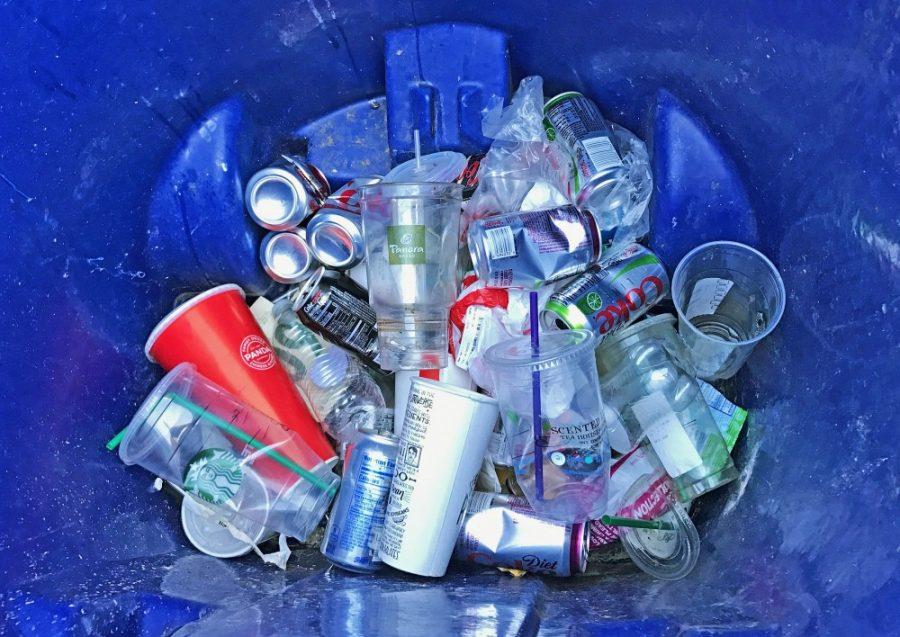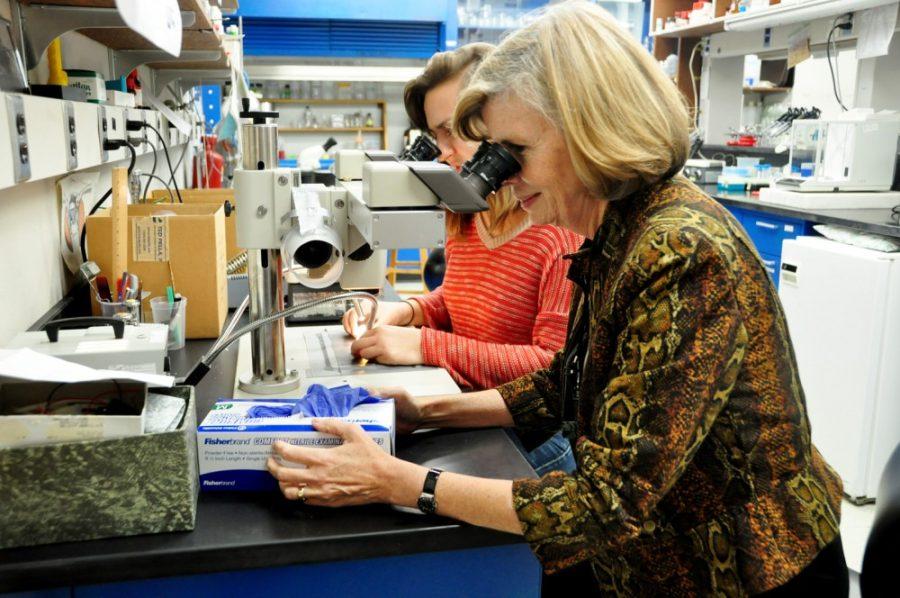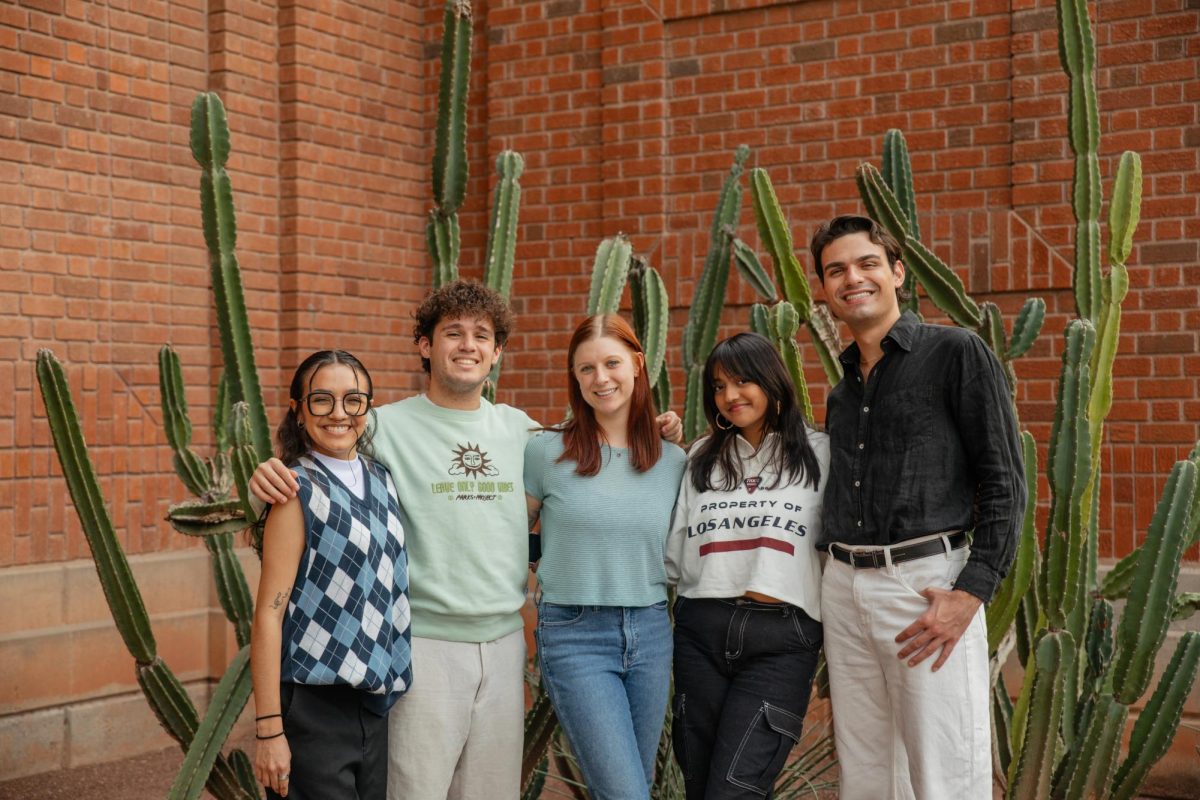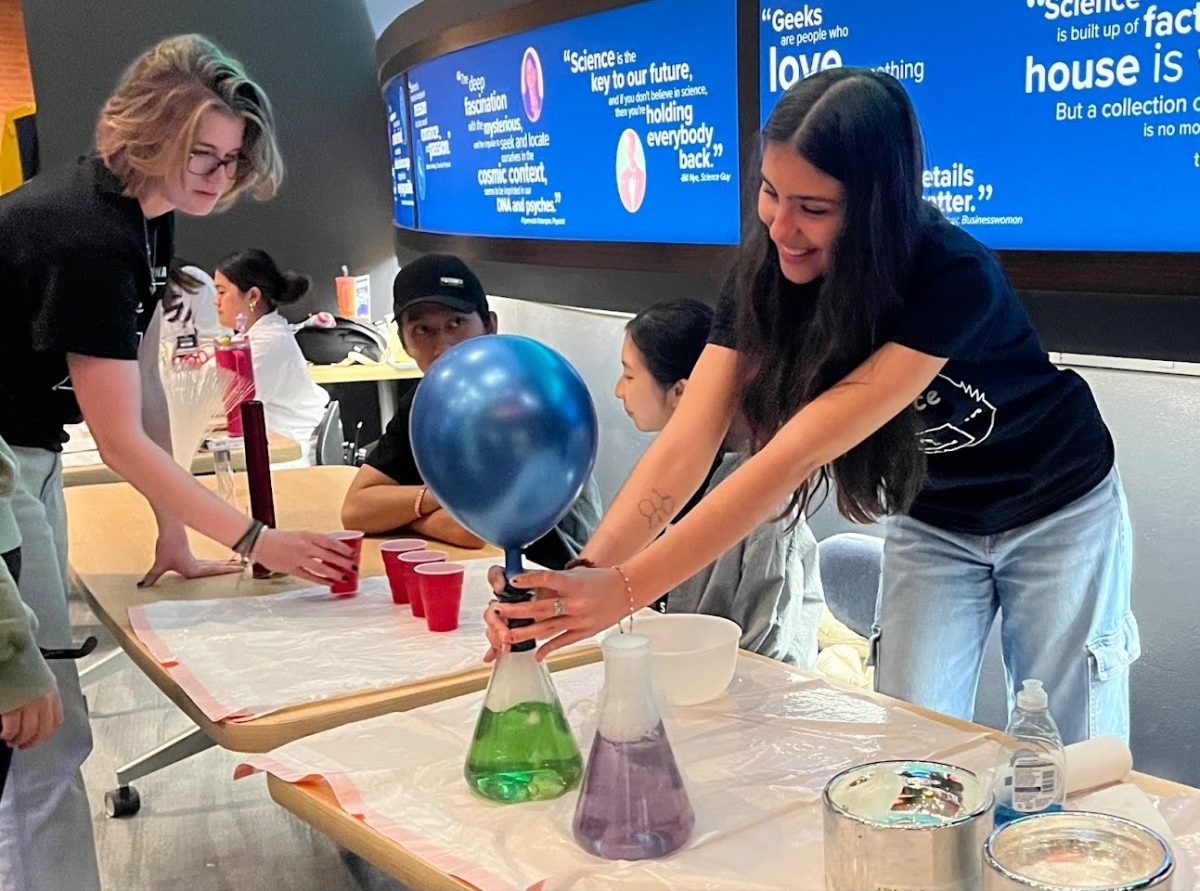There’s a big blue recycling bin in the center of Frog and Firkin’s outdoor serving area. It can’t be missed, and it offers patrons and staff an alternative to simply throwing recyclable items away.
This is significant because according to 2014 EPA data, the United States produces upwards of 200 million tons of municipal solid waste (MSW) every year. 89 million tons of waste were recycled in 2014, an amount equivalent to the yearly emissions of 38 million cars.
Frog and Firkin
The conspicuous bin is one of the ways that Frog and Firkin actively seeks to reduce environmental waste. Brittney Gregory, front house manager at Frog and Firkin, said the effort began with an employee.
“Two years ago, we had an employee doing environmental science as her major,” Gregory said. “She pointed out that people would be more inclined to order bottled beers if they knew that we recycled.”
After that, Frog and Firkin got a separate bin for recycling. Bartenders at Frog and Firkin now recycle all of their empty bottles, and Gregory said that diligence has paid off — literally.
“I think that we sell more bottles now,” Gregory said.
RELATED: Conflict management may affect a child’s well-being
Illegal Pete’s
April Ramirez, assistant general manager at Illegal Pete’s, said the restaurant is transitioning toward more sustainable practices.
“All of our to-go containers are eco-friendly,” Ramirez said. “Our cups, our utensils, our bowls … we’ve gotten big into that.”
Having biodegradable containers means that when they are thrown away, the containers can be easily decomposed by bacteria and other living organisms.
Illegal Pete’s containers are made of sugarcane and break down especially quickly, according to Ramirez. Additionally, there’s a policy of recycling at Illegal Pete’s. Cardboard boxes, empty bottles and other recyclables are kept separate from trash and deposited into marked bins.
“We’re doing at least what we can do, on our side,” Ramirez said.
Red’s Smokehouse and Tap Room
Around the corner, Red’s Smokehouse and Tap Room offers a different ambiance with a similar mindset. Roughly half of the beers on tap at Red’s are from local breweries. Scott Miller, manager at Red’s, said that being local is sustainable on a number of levels.
“We’re local first,” Miller said.
Buying local beer not only supports the Tucson economy, but also requires less transportation. This cuts down on transit costs, as well as greenhouse gas emissions.
“And they’re quality beers,” Miller said. “That’s the nice thing about it.”
RELATED: Drop, Cover and Hold On: What to do during an earthquake
Though it’s taken some time to incorporate, Red’s does have an established method for recycling. There’s the standard bin in the back, but they also recycle in other ways.
For instance, Red’s, and Pasco Kitchen and Lounge, which operate under the same owner, have a system for reusing their empty liquor bottles.
“It allows us to take a liquor bottle, clean it up, and we’ll use that as our container,” Miller said.
Pasco Kitchen and Lounge
Just down the street, Pasco Kitchen and Lounge offers house-made cocktails and organic food choices, with a scene typically more laid-back than Red’s.
Here, however, there is an even greater emphasis on sustainability. Most of the items on the menu are harvested locally, and recycling happens on a wider scale.
“We’re doing it because we know it’s the right thing to do,” Miller said.
There’s even a shared garden in the back, with space for composting.
Follow The Daily Wildcat on Twitter









